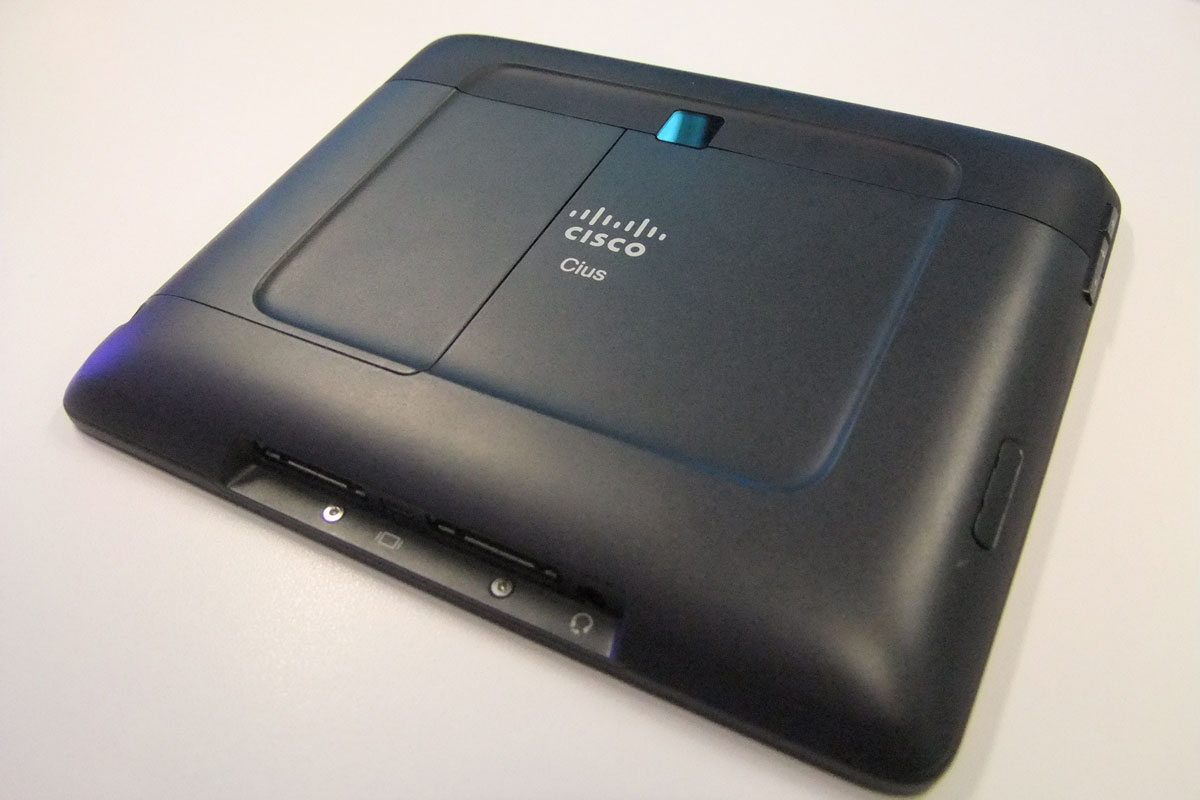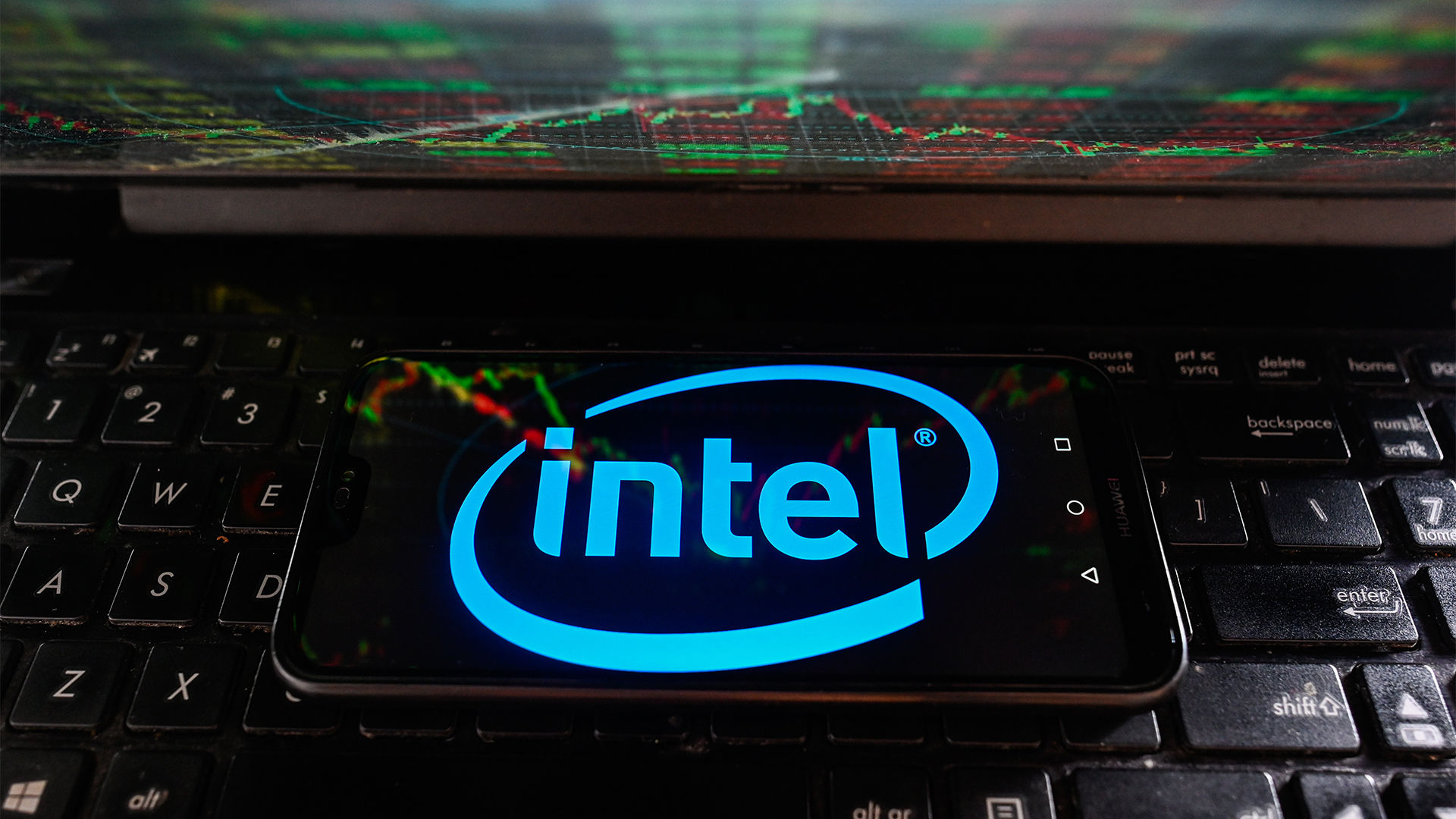On the operating table
Unlike the vast majority of other modern Android tablets which use the 3.0 Honeycomb version of Google's operating system, the Cius uses Android 2.2 which was originally designed for smartphones. The interface is largely unchanged from other Froyo devices and didn't feel quite as responsive as other tablets we've seen.
The Cius uses Android 2.2 which was originally designed for smartphones.
Although all this might put off some users, Cisco has confirmed that the Cius will be compatible with Ice Cream Sandwich, Honeycomb's successor, at some point in the future. In line with the Cius' corporate focus, instead of receiving operating system upgrades over the air automatically, administrators can choose when to deploy an upgrade, if at all.

The rear of the Cisco Cius.
The Cius should be easier than other tablets for IT administrators to deploy thanks to Cisco's Communications Manager software. It can common configuration settings to a whole fleet of Cius tablets, such as distributing security certificates, enforcing a minimum level of password complexity, remotely wiping lost tablets and disabling certain hardware features such as the SD card slot. Sadly, it doesn't appear possible to disable the rear or forward facing webcams.
It isn't clear if the encryption is hardware accelerated or not. If it isn't, wiping the Cius could take a very long time, depending on how much data is stored locally.
Sign up today and you will receive a free copy of our Future Focus 2025 report - the leading guidance on AI, cybersecurity and other IT challenges as per 700+ senior executives
Appy meal
To make up for the lack of access to Honeycomb-compatible tablet-optimised apps Cisco has its own Android app store, AppHQ. Administrators will be able to setup a 'store within a store' for their users where only company-approved apps will be available for download or purchase. Administrators can enable or disable access to the Android Market at will.
-
 OpenAI's 'Skills in Codex' service aims to supercharge agent efficiency for developers
OpenAI's 'Skills in Codex' service aims to supercharge agent efficiency for developersNews The Skills in Codex service will provide users with a package of handy instructions and scripts to tweak and fine-tune agents for specific tasks.
-
 Cloud infrastructure spending hit $102.6 billion in Q3 2025
Cloud infrastructure spending hit $102.6 billion in Q3 2025News Hyperscalers are increasingly offering platform-level capabilities that support multi-model deployment and the reliable operation of AI agents
-
 Why Intel is pushing for developers to adopt AI PCs
Why Intel is pushing for developers to adopt AI PCsNews A new Intel initiative aims to drive developer adoption of AI PCs and improve synergy with the hardware makers building these next-generation devices
-
 Intel CTO: Open source ecosystem is “poorly written”
Intel CTO: Open source ecosystem is “poorly written”News Chipmaker calls on industry to improve contributions
-
 GoTo appoints Michael Day as its new channel chief
GoTo appoints Michael Day as its new channel chiefNews Channel veteran will lead the company’s recently announced GoTo Partner Network
-
 Tech giants lobby US to fund chip production
Tech giants lobby US to fund chip productionNews Industry heavyweights ask Congress for $50 billion in chip manufacturing subsidies
-
 The total economic impact of the Intel vPro® platform
The total economic impact of the Intel vPro® platformWhitepaper Save costs. Save time. Save the workday.
-
 Zoom launches hardware as a service video conferencing portfolio
Zoom launches hardware as a service video conferencing portfolioNews The video conferencing giant has partnered with four companies to launch hardware for Zoom Phone and Zoom Rooms services
-
 Google developing all in one messaging app for business
Google developing all in one messaging app for businessNews The app will combine G Suite services into one single mobile entity, according to reports
-
 How unified communications could energise your business
How unified communications could energise your businessIn-depth Unified communications used to be a buzzword reserved for enterprises and huge budgets – but not anymore